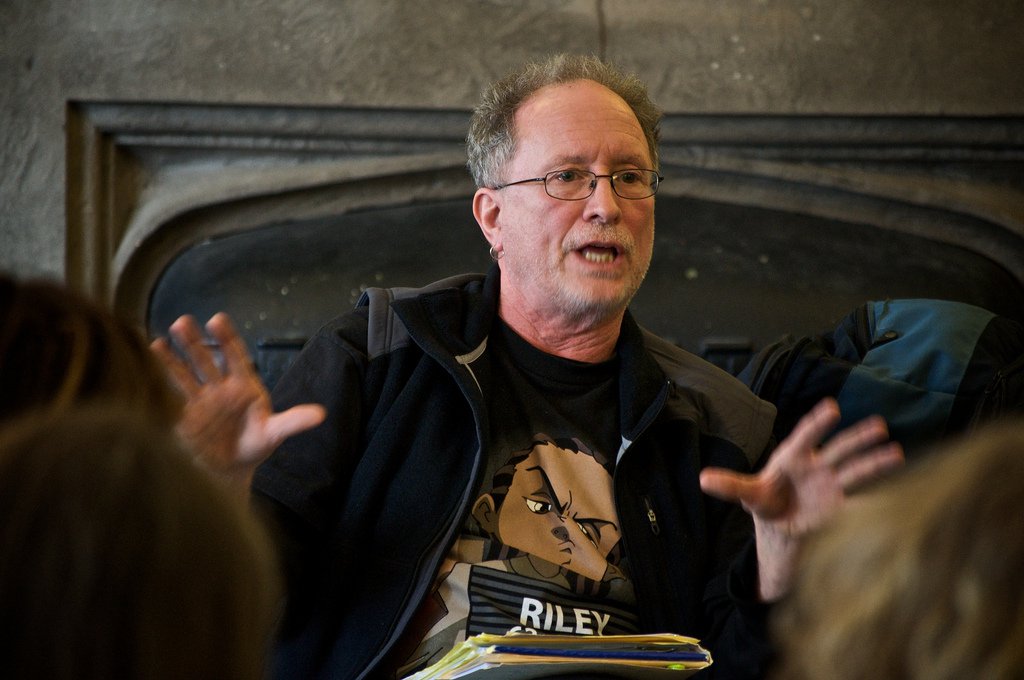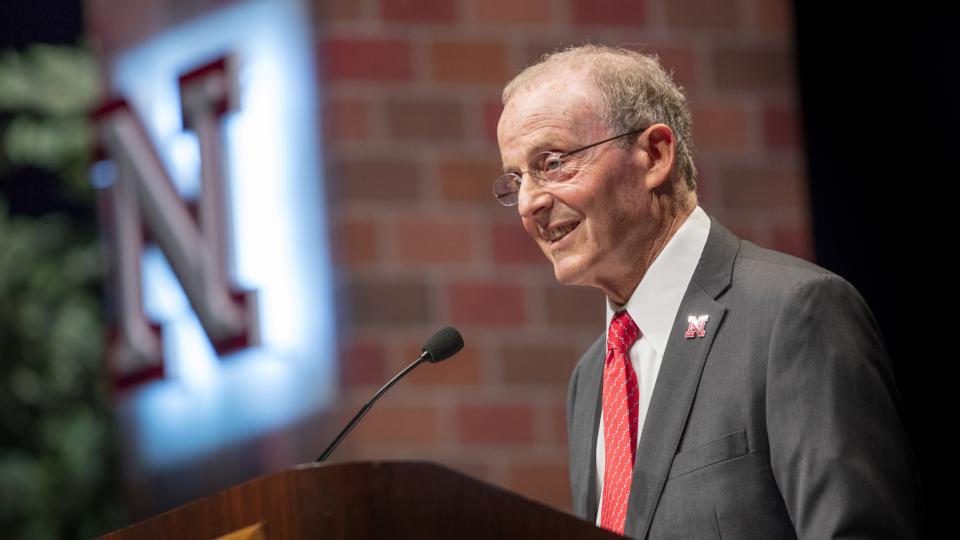
Originally published in the Omaha World-Herald
Even given the likelihood of heightened security and threats to his safety, education professor William Ayers still wanted to speak at the University of Nebraska-Lincoln this weekend.
“I wouldn’t force myself on the college, of course, but I felt that canceling would send a terrible message to students, bring shame to the university, and be another step down the slippery slope of giving up on the precious ideal of a free university in a free society,” Ayers writes in his first detailed statement on the controversy, published today.
Ayers, an anti-war radical in the 1960s, wrote that he told UNL administrators the day before they canceled his speech that complaints over his appearance were “a bit of a tempest in a teapot” that surely would pass. And he indicated to them that he would have felt safe speaking at UNL.
“Certainly no matter what a group of extremists claimed they might do, I said, I thought that the Nebraska state police could get me to the podium, and I would handle myself from there,” wrote Ayers, who became a controversial figure in the presidential campaign because of his ties to Barack Obama.
In addition to saying his speech should not have been canceled, Ayers denied committing terrorist acts 40 years ago and indicated that he thought Gov. Dave Heineman and other state officials bullied UNL leaders into rescinding the invitation.
“Is a public university the personal fiefdom or the political clubhouse of the governor? . . . Do we collapse in fear if a small mob gathers with torches at the gates?” Ayers asked.
Heineman was traveling out of state Tuesday and unavailable for comment, a spokeswoman said.
University of Nebraska Regent Randy Ferlic of Omaha — one of the first public officials to criticize Ayers’ appearance — said Tuesday that canceling the speech certainly didn’t stain UNL’s reputation. Ferlic said the move helped the university’s standing across the state because many Nebraskans didn’t want Ayers to come.
“The collective voice of citizens of Nebraska spoke for itself,” he said. “And I don’t think he’s of the stature or accomplishments that warrant him being honored here.”
UNL announced last month that Ayers, a University of Illinois at Chicago professor, had been asked in February to speak at the education college’s 100-year anniversary celebration.
A firestorm began.

State political leaders condemned the university for inviting Ayers and urged UNL to rescind his invitation. A donor threatened to pull money from the university. And UNL received roughly 1,000 e-mails and phone calls pertaining to the speech.
“If he does come, you better have plenty of security because it is a potentially dangerous situation,” said one e-mail writer.
Citing safety concerns, UNL Chancellor Harvey Perlman canceled the speech the day after it was announced, while Ayers was in Taiwan. Perlman, who read Ayers’ opinion piece, didn’t take issue with it, spokeswoman Kelly Bartling said. Bartling said Perlman maintains that he did not buckle under political pressure.
“We made the best decision we could make, and if Ayers wants to criticize, then he absolutely has the right to do that,” she said.
Ayers was a member of the Weather Underground, a group that staged domestic bombings to protest the Vietnam War. He went on to become an education professor and created a Chicago-based school reform group. President-elect Obama was chairman of that group’s board for four years. Ayers also has been a political supporter of Obama’s, hosting a brunch for him when he ran for the Illinois State Senate.
In his opinion piece, Ayers denied committing terrorist acts 40 years ago, saying “I am not and never was a terrorist . . . nothing I did 40 years ago was terrorism; the fact is that no innocent people were killed or even injured by any actions of the Weather Underground.”
Ayers’ contention that no innocent people were hurt or killed is one he’s stated previously. And indeed, while historical accounts indicate that the group bombed numerous public buildings, the only reported casualties were three members of the Weathermen who were killed when a bomb they were making in New York City accidentally exploded. Whether there was intent to injure is another question.
For example, members of the group have said the nail bomb that prematurely detonated was intended to be set off at a military dance in New Jersey. As one historian told the New York Times in 2003, “The only reason they were not guilty of mass murder is mere incompetence.” The Weathermen also reportedly took part in riots in which police officers suffered injuries.
Although Ayers does not consider himself to have been a terrorist, the FBI did label the Weathermen “a domestic terrorist group.”

Ayers wrote in his opinion piece that he is a “political radical, lifelong educator and a skeptic.” He said the presidential campaign made him an “unwanted celebrity” and that was “absolutely the only reason I’m not allowed to speak this week.” The fallout, he wrote, “will affect me only marginally. The university will surely suffer.”
Whether it’s a teacher in Omaha or Oakland, he said, the message is “be careful what you say; stay close to the official story; stick to the authorized text; keep quiet with your head down.”
Kathleen Prochaska-Cue, president of UNL’s Academic Senate, said rescinding Ayers’ invitation has damaged the university.
“Maybe not in the state of Nebraska, but it (has) in other parts of country,” she said. “We’ve heard from faculty and administrators across the country who say they will not recommend any of their graduates to seek employment here because of this political climate.”